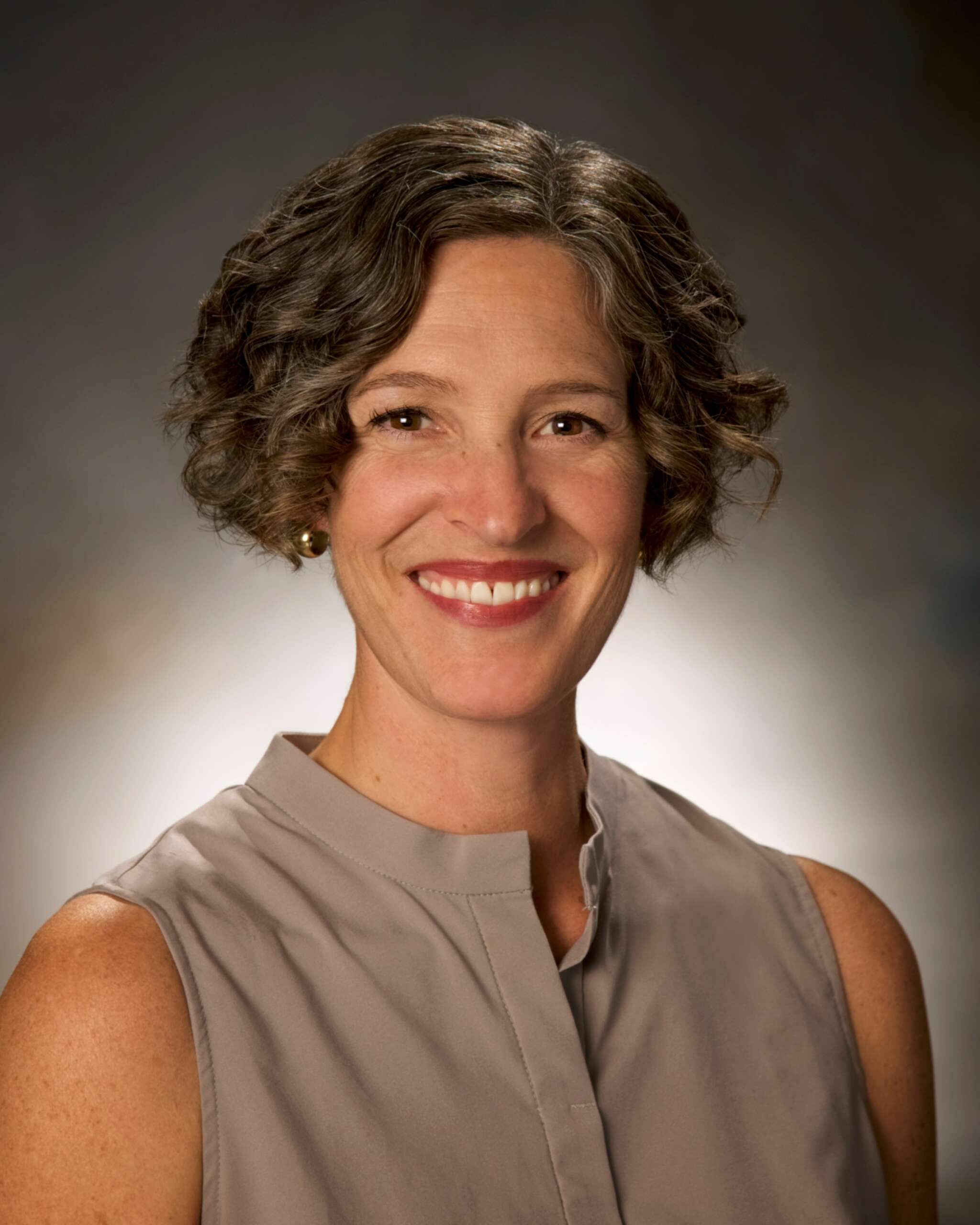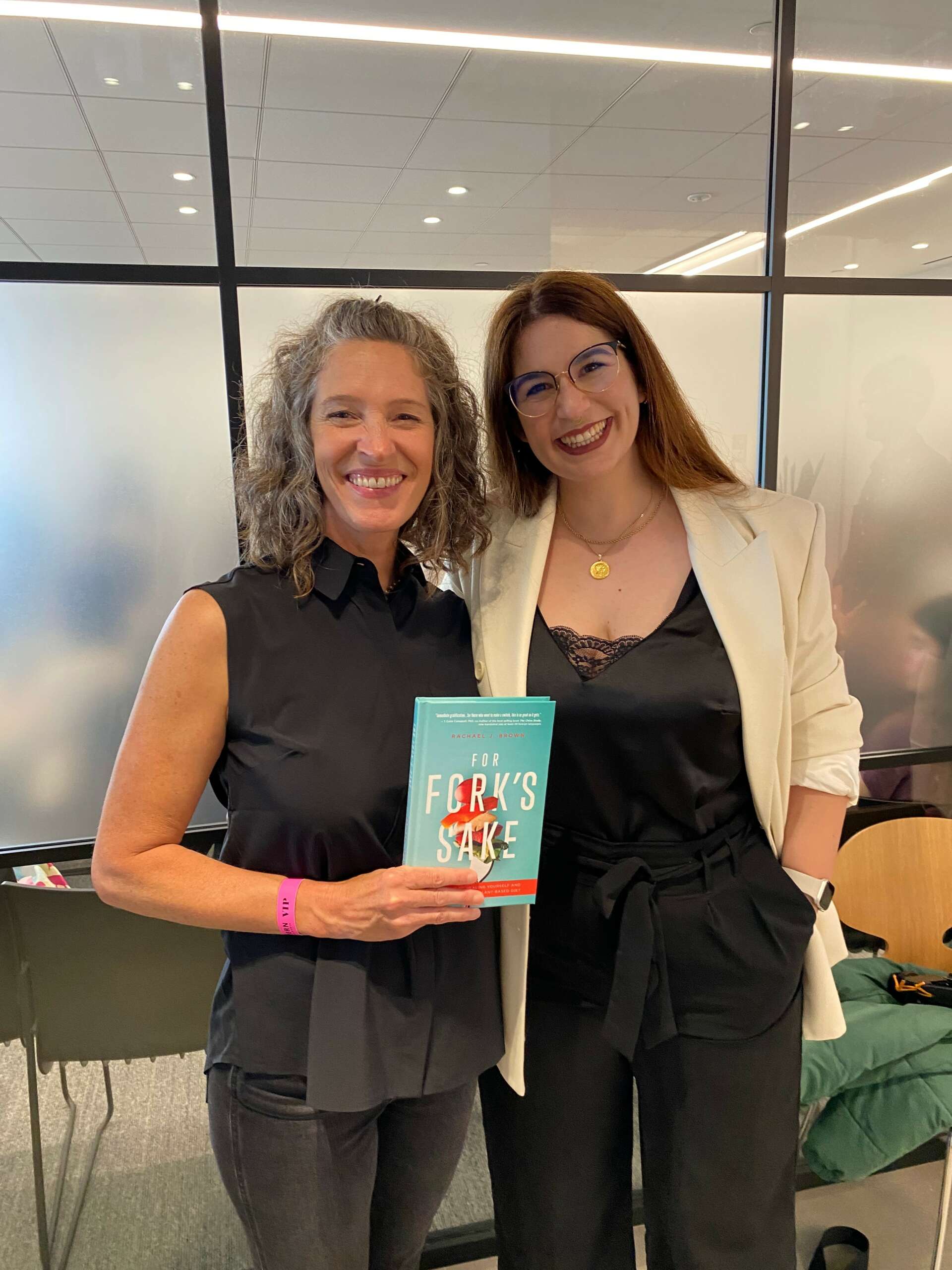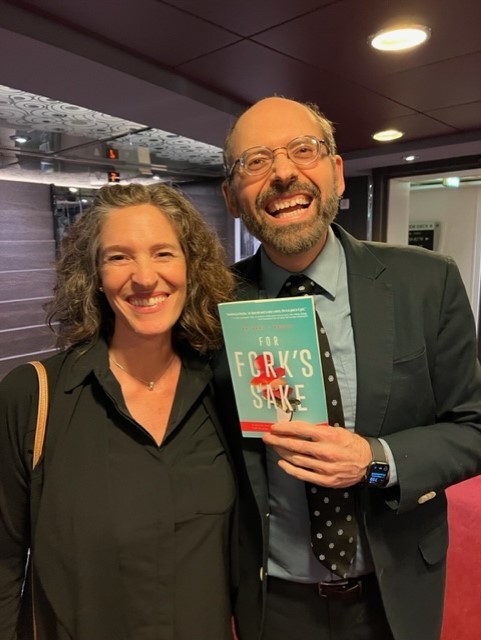We’re excited to introduce you to the always interesting and insightful Rachael Brown. We hope you’ll enjoy our conversation with Rachael below.
Rachael, thanks for joining us, excited to have you contributing your stories and insights. Was there a moment in your career that meaningfully altered your trajectory? If so, we’d love to hear the backstory.
After reading T. Colin Campbell’s The China Study, and finding out my genetics were only around a 10% determinant as to whether I’d get Alzheimer’s like my father and grandfather, pancreatic cancer like my uncle and grandfather, strokes like my grandmother and grandfather or high blood pressure and cholesterol like the rest of my family, and that 90% of my health was determined by lifestyle choices (most importantly, what I ate), I was shocked.
This information, seemingly news to most the medical professionals I’d met and talked with, changed both how I chose to live and how I raised my kids. It led me to change professions, and to want to share the good news about what food can do to prevent and reverse diseases now common to most Americans.


As always, we appreciate you sharing your insights and we’ve got a few more questions for you, but before we get to all of that can you take a minute to introduce yourself and give our readers some of your back background and context?
Fourteen years ago my 5-year old nephew was diagnosed with cancer and his mother, who was in nursing school at the time, had a professor ask if she’d looked into the role of nutrition in cancer. After reading The China Study and watching the documentary Forks Over Knives, she changed their diet overnight.
I read the book and watched the documentary as she suggested and decided to give it a try with my family–we got our bloodwork, ate whole food, plant-based, no oil for 17 days and when I followed up with more bloodwork and an appointment with my doctor he asked what I’d done, since my cholesterol had dropped 50 points in those 17 days. My kids were 6 and 8 at the time, and we all felt noticeably better after changing what we were putting into our bodies. We wanted to share this amazing truth with our family and friends, most of whom initially thought we were crazy with this ‘fad’ diet.
I wrote For Fork’s Sake: A Quick Guide to Healing Yourself and the Planet Through a Plant-Based Diet for those who handed me back The China Study after I gave it to them, stating it was too long/hard/science-y. It’s a quick and easy read and guide for anyone looking to improve their health. It’s the book to give to your mother or uncle or adult child who is wondering why exactly you now enjoy black bean burgers and omit oil from your cooking. It answers both the ‘why’ and ‘how’–why changing our diets is important not only for our health but for the health of the planet, and how exactly to do it in a sustainable way.
I consult with people (www.forforkssakebook.com) and speak to groups (libraries, bookstores, senior centers, schools) and in general help people see that eating a whole food, plant-based, no oil diet is not more expensive (in fact, you’ll be saving money), does not take more time (you’ll learn to batch cook and throw things together like a pro) and provides all the protein you’ll ever need, and then some. From newbies to people who have ‘fallen off the vegan wagon’, from parents of young children to 87-year old’s who are now off medications after working with me, I delight in helping people see that anyone can make healthy changes, and I make it easy.
I am especially proud that esteemed Professor Emeritus of Nutritional Biochemistry at Cornell University and author of The China Study, T. Colin Campbell endorsed my book, as did Dr. John and Mary McDougall, Dr. Anthony Lim, Dr. Stephan Esser, and Dreena Burton, among others. 50% of the proceeds from the sale of For Fork’s Sake is donated to non-profits and 1% of gross sales goes to 1% For the Planet. This book and my work around it is my best effort at helping both people and the planet.


Can you tell us about a time you’ve had to pivot?
I was happily practicing the Pain Neutralization Technique as a licensed massage practitioner–neurological work helping people get out of chronic pain–when Covid hit. I couldn’t see clients for months on end and was stuck at home with my high school age kids doing school on their computers.
We’d been eating whole food, plant-based, no oil for 12 years at that point, but since I couldn’t see clients, I decided to get my plant-based nutrition certification online though Cornell and T. Colin Campbell’s Center for Nutrition Studies. When I finished, Covid was still happening, so I took their Food Systems and Sustainability certification as well.
I wanted to share the incredible information I’d learned, which solidified and explained all the health benefits we as a family had enjoyed over the past 12 years, and so decided to write a book. After the book came out (and I could travel and speak to audiences), people asked about coaching and consulting, so I started doing that as well.
Without Covid I’m not sure I’d ever have paused my work with people in chronic pain, however I’m now reaching a broader audience with news that can help them avoid all kinds of diseases that come with eating the SAD (standard American diet) and I find great joy in helping people go from SAD to HAPPY (healthy and plant-powered, yay).
We often hear about learning lessons – but just as important is unlearning lessons. Have you ever had to unlearn a lesson?
I liked to believe that when people know better, they do better.
When sharing the scientifically supported information about eating whole food, plant-based, no oil I realized that sometimes, even if people know better, they choose not to do better. After digging deeper into why this is, I found several reasons that hinder better choices.
First, obviously, is the education piece. It can be tricky, because sometimes even when people do learn something new, they don’t like the information and so choose to ignore it. When the information isn’t mainstream, or even their own doctor hasn’t heard of it (because they had only one class in nutrition in all their medical training), it can be hard to believe.
Second, we are a social species, and it’s hard to do something different when the rest of the pack (your family, your community, your coworkers) isn’t.
Third, it’s hard to to choose, over and over, the healthy choice, when that is not the easiest option presented. From drive through to take out, to foods engineered to be addicting placed at eye level at the grocery store checkout, choosing to eat whole food, plant-based, no oil can be hard, especially in the beginning, when you’re constantly having to make choices that aren’t the easiest choice.
Even though all these things can be hard, once people have the experience of feeling better–watching their cholesterol, blood pressure and blood sugar numbers improve–they do make the hard choice to make changes in their diets. Getting rid of tempting foods at home and getting used to making new choices is key.
Contact Info:
- Website: https://forforkssakebook.com/
- Instagram: https://www.instagram.com/forforkssakebook/
- Facebook: https://www.facebook.com/forforkssakebookcom
- Linkedin: https://www.linkedin.com/in/rachael-brown-7090b6251/
- Youtube: https://www.youtube.com/@ForForksSake/featured
- Other: Rachael J. Brown earned her plant-based nutrition certification and food and sustainability certification from the T. Colin Campbell Center for Nutrition Studies and eCornell. After being diagnosed with high cholesterol in her late 20s, she discovered The China Study and started exploring the science of nutrition. After she ate WFPBNO for just 17 days, her cholesterol dropped 50 points. That was the beginning of her family’s journey from the standard American diet (SAD) to a whole-food, plant-based, no-oil (WFPBNO) lifestyle. A licensed practitioner of massage and the pain neutralization technique, Rachael is also a certified yoga and Pilates instructor and a spiritual director. She completed the 12-Day McDougall Program and has led corporate mindfulness seminars. She received her BA in geography from the University of Washington and has been an adjunct professor in nutrition and wellness. Rachael belongs to the University of Washington Alumni Association, the T. Colin Campbell Center for Nutrition Studies’ Whole Communities program, and Eat for the Earth, as well as Plantstrong and McDougall communities. Rachael is happily married with two grown children. She lives in California, where she can usually be found trail running, rock climbing, cycling, and bikepacking with her husband. Learn more at www.forforkssakebook.com.


